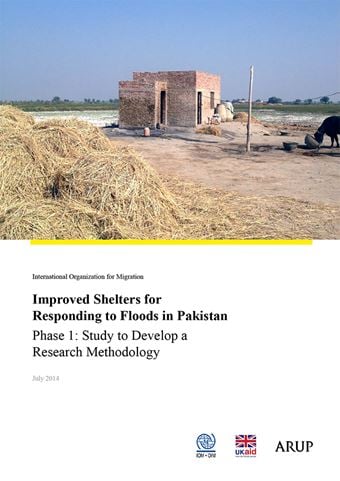Arup International Development have just completed some research on behalf of DFID and International Organisation for Migration on flood resilient shelter in southern Pakistan.
For three years in a row, 2010-2012, extreme flooding has occurred in southern Pakistan which caused widespread devastation and resulted in more than 2.5 million houses being destroyed. Humanitarian agencies and donors carried out shelter programmes in response to these events which assisted in the re-construction of 100,000 houses. However, their capacity is dwarfed by the magnitude and frequency of these flood events, leaving many families without assistance. Given the likelihood of increased flood risk and limited humanitarian funding in the future, it is therefore imperative to focus on enabling communities living in flood-prone areas to build flood-resilient shelters.
This study draws together existing information on flood-resilient shelters in order to identify key criteria that shelter partners and government can use to inform and assess the design of flood-resilient housing in southern Pakistan. Its primary purpose has been to inform a methodology for further research that will provide a scientifically and academically robust basis for assessing and comparing shelters constructed in southern Pakistan. Ultimately, this study will contribute to an evidence-based construction guide informed by best practice that can be used by policy makers, operational agencies and local builders.

